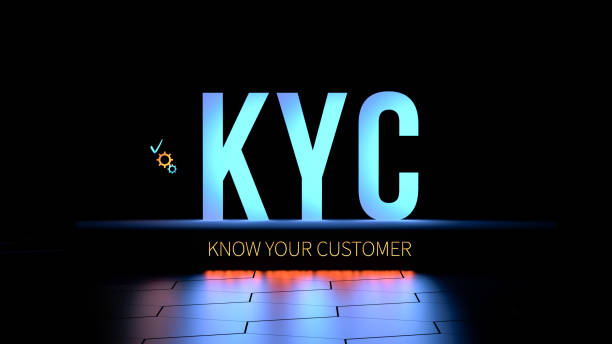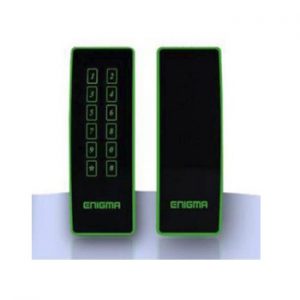Know-your-customer (KYC) is compulsory in companies before onboarding customers. KYC makes it easy for companies to comply with regulations. The KYC onboarding process is crucial for businesses to protect them from financial fraud and fines.
For KYC, businesses verify the documents such as driver’s licenses, passports, ID cards, and other verification documents. Optical character recognition (OCR) is the latest invention used in the KYC process to extract data from print papers. Banking and financial institutes are converting to digitalization as they need to onboard customers quickly. Consumers need a secure and efficient onboarding process. For the due diligence complying process, AI framework KYC onboarding is essential.
What is the Digital KYC Onboarding Process?
Know-your-customer (KYC) is a process to identify the customer’s identity. It helps businesses to detect scammers before onboarding them. Meeting regulations are compulsory for all financial institutions. Digital KYC uses advanced technology and proactive, efficient techniques to comply with regulations and enhance the customer experience.
Traditionally, KYC processes required physical documents and in-person verification; however, with technological improvements and increased demand for remote services, digital KYC onboarding has become more efficient and comfortable. It also authenticates the documents meticulously to enhance due diligence (EDD) in banking.
The typical KYC onboarding process is needed when customers want to open an account or to establish a trustworthy relationship with financial institutes and businesses. In the electronic KYC for banking, customers must provide personal information, such as their name, address, date of birth, and contact details, either through an online form or a mobile application. Along with this information, the customer may also need to upload scanned copies or images of their identification documents, such as a passport, driver’s license, or national ID card.
After the customer provides all information, companies use digital KYC solutions. AI KYC verification will automate systems to verify the authenticity of the provided documents and cross-reference them with reliable databases. The digital KYC process makes this entire process secure and enhances the accuracy of results.
Benefits of OCR Scanner in the KYC Onboarding Process
In the digital KYC onboarding process, an Optical Character Recognition scanner (OCR) is essential. It is a technique that allows text to be extracted from pictures, including scanned documents or photographs. OCR scanners are used in KYC to extract essential information from identifying papers such as passports, driver’s licences, and ID cards. Given below are the benefits of using OCR in the digital KYC onboarding process:
Document Gathering
Customers in the digital village can submit the document virtually from their homes. They may upload to the online platform, and companies can utilize OCR scanners to determine the image format. Businesses implement powerful machine learning to validate visible security elements like holograms, endorsements, typography, etc. It also assists customers in scanned copies or photographs of their identification documents, which could be in various formats such as JPEG or PDF.
Document Extraction
The OCR scanner uses AI machine learning technology that changes printed paper data into digital formats. Before that, for accurate results, it enhances image processing. The image processing method improves the quality and clarity of the scanned document. This online KYC process makes noise reduction, contrast correction, and picture standardization. The OCR scanner can achieve more accuracy throughout text extraction by improving picture quality.
Enhance Security
The digital KYC onboarding process uses OCR scanner technology. This technology depends on the AI framework and machine learning algorithm by utilizing proactive techniques, there is no chance of human error. It ensures the data extracted from the print documents is accurate. It also accelerates the process because companies don’t need human resources to enter data manually. Accordion to the Patriot Act of the US, companies must conduct customer due diligence in the onboarding process. AI technology and proactive risk assessment tools enhance due diligence. Business representatives can customize the detection only to detect information essential for verification. It accelerates the process and saves time and cost for the company.
Improved Onboarding
Technology is evolving, and with it, the rush of customers in all fields is proliferated. Proactive KYC onboarding processes are the need in this fast-paced life. Effective and efficient KYC complying systems make the life of the customer and companies stable. OCR scanners in the onboarding process enhance the speed to assist the company agent in extracting the data from various documents in one click. Employees need more time to add the data manually. Implementing AI technology in the KYC onboarding process reduces the extra time, and employees can use that in some productive work.
Securing the Data
Digital KYC solutions providers have secure databases to preserve customers’ personal information. The data breach of the companies can affect their reputations and create a dent in revenue. It is a must for companies to protect all information provided under the know your customer checklist. The KYC verification protects the data from cyber-scammers and ensures security with an authentication code. The data can only be accessible to those who own the information, so the customers’ personal information can not be used in illicit activities.
Text Digitization:
OCR technology converts printed or handwritten text into digital formats, enabling easy storage, retrieval, and sharing of information. This digitization process eliminates the need for manual data entry, saving time and reducing human errors.
Improved Data Entry Efficiency:
OCR automates the process of data entry by quickly and accurately capturing text from physical documents, such as invoices, forms, and receipts. This improves efficiency and reduces the risk of transcription errors.
Enhanced Searchability:
Once documents are digitized using OCR, the text becomes searchable. This enables users to quickly locate specific information within large volumes of documents, increasing productivity and reducing the time spent on manual searching.
Language Translation:
OCR can be combined with machine translation tools to automatically translate text from one language to another. This is particularly useful for businesses dealing with international clients and customers.
Summing up the KYC Onboarding Process
Businesses must comply with various know-your-customer rules, constantly upgrading with time. To comply with these rigorous obligations, companies must conduct the KYC process meticulously. Autmotation of the KYC onboarding process makes complying with these strict regulations straightforward.



